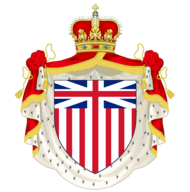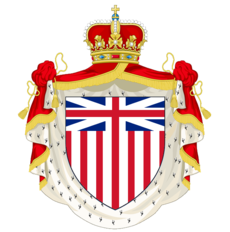Parliament of Abrus
| Kingdom of Abrus |
 This article is part of the series: |
|
|
|
The Crown
Monarchy of Abrus
Executive
Prime Minister: N/A
Legislative
Parliament of Abrus
Judiciary
Supreme Court Cabinet Departments
|
The Parliament of the Kingdom of New Britain, commonly referred to as New-British Parliament, is the legislative branch of the government of New Britain. It consists of four elements: the moarch, the Prime Minister, the Senate, and the House of Commons. The combination of two elected houses, in which the members of the Senate are appointed by the monarch, and the members of the House of Commons represent electoral divisions according to population.
The upper house, the Senate, consists of 2 seats: 1 for each county. Senators are appointed by the monarch. The lower house, the House of commons, currently consists of 4 seats, which represents districts known as constituencies. Each constituency elects one member using compulsory preferential voting. The house meets in the Parliamentary meeting place, Parliament circle in Cavlan, Anastasia. There is currently no parliament.
Functions
The principal function of the Parliament is to pass laws, or legislation. Any Member may introduce a proposed law (a bill). In practice, the great majority of bills are introduced by ministers. Bills introduced by other Members are called private members' bills. All bills must be passed by the House to become law. The enacting formula for Acts of Parliament is simply "The Parliament of New Britain enacts:".
The Parliament performs other functions besides legislation. It can discuss urgency motions or matters of public importance: these provide a forum for debates on public policy matters. Members can move motions of censure against the government or against individual ministers. On most sitting days in the House there is a session called Question Time at which Members address questions to the Prime Minister and other ministers. Members can also present petitions from their constituents. the House has an extensive system of committees in which draft bills are debated, evidence is taken and public servants are questioned.
Privilege
Members of Parliament are exempt from being prosecuted for all crimes except for national felonies.
Elections
General Elections are held to pick the Members of Parliament. A General Election is held at the monarch's desire. After a general election concludes, All members of parliament are to recite an oath of office (which is different for multiple positions such as Prime Minister, House of Commons, etc.) to bear full allegiance to the monarch.
State Opening
The State Opening of Parliament is an annual event that marks the commencement of a session of the Parliament of the Kingdom of New Britain by the monarch.
Procedure
The monarch reads a speech, known as the Speech from the Throne, which is prepared by the Prime Minister, outlining the Government's agenda for the coming year. The speech reflects the legislative agenda for which the Cabinet seeks the agreement of the Parliament.
After the monarch leaves, each Chamber proceeds to the consideration of an "Address in Reply to HM's Gracious Speech." and 1 week later come together for the first mandatory meeting.
